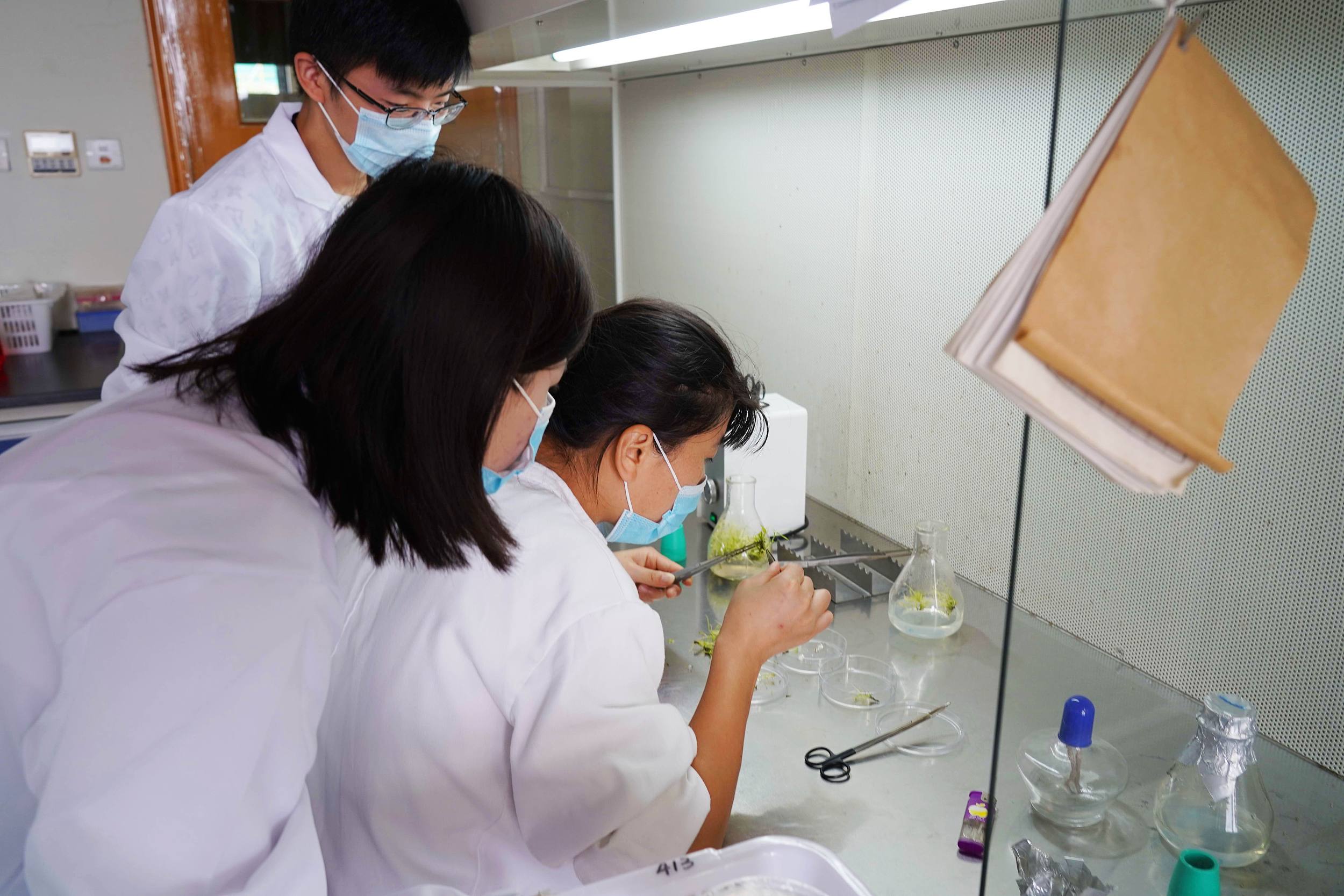
Participating in research provides students with first-hand experience of a potential career path. Photo shows undergraduates and postgraduates from Zhejiang A&F University conduct research in a laboratory. (PHOTO: VCG)
By?CHEN?Chunyou
To achieve the goal of sustainable development, it is now more true than ever that supporting basic research is the pacemaker of sci-tech progress.
On June 30, a meeting held by the National Natural Science Foundation of China (NSFC), proposed to strengthen the support of basic research for doctoral students, as well as funding some outstanding college undergraduates on a pilot basis, aiming to establish a long-term cultivation mechanism and cultivate more talented individuals and research teams.
At NSFC meeting, Minister of Science and Technology Wang Zhigang stressed that equal importance should be attached to producing research results and cultivating researchers, so that they can develop themselves and improve their capabilities through research activities.
Dou Xiankang, president of NSFC, said NSFC will push for the formation of a good research ecosystem by improving the research evaluation system and incentive mechanism, and build a platform for global scholars to conduct cooperative research.
According to Dou, in the past five years, a total of 1.35 million project applications were submitted to NSFC, of which 236,700 were funded on a selective basis, reaching about 146.4 billion RMB, covering all disciplines of natural science. Major frontier achievements, such as multi-photon entanglement, have also been produced, which enhance the influence of China's basic research on the global stage.
In addition, another NSFC meeting held in early July gave a major boost for female researchers, committing to extending the funding age of female researchers applying for National Outstanding Youth Science Fund Project from 45 to 48, which will take effect in 2024. This aims to create more opportunities for female researchers and grow them to be strategic scientists.
The trio will conduct a series of experiments in fields such as life science, fluid physics, combustion science and materials science. Notably, this is the first time that fruit flies have been taken on a Chinese space mission as experimental subjects. What made scientists choose fruit flies? What experiment will they undergo?
